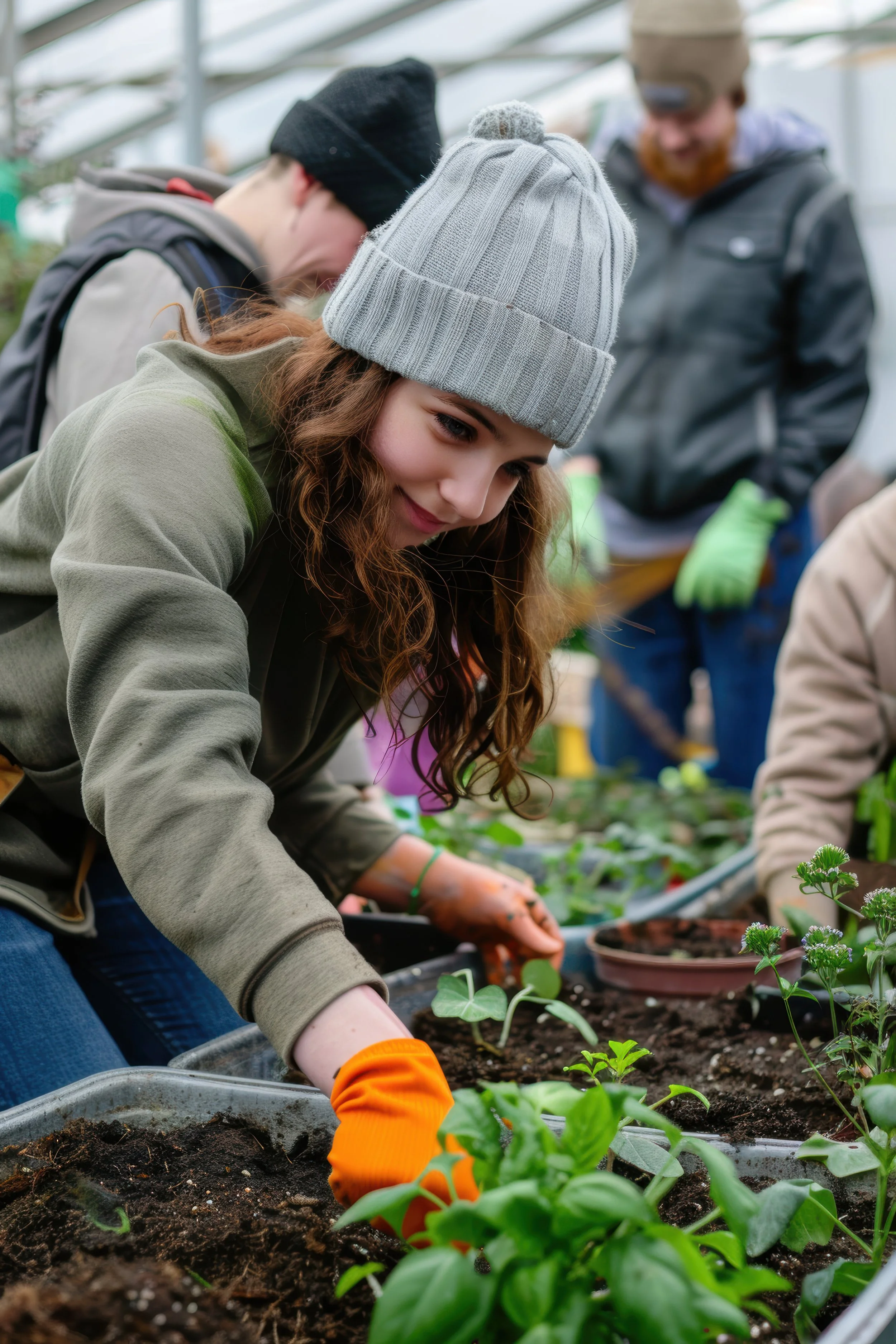Escargot, soil, and students: the BioCycle Hub’s hands-on future
Something’s breaking open.
Across the country, people are pouring into the streets—not just with signs, but with questions. Who really holds power? Who benefits from the systems we’ve inherited? And what if we stopped waiting for solutions from the top?
The "no kings" protests echo something deeper than politics. They reflect a growing hunger for self-determination, local wisdom, and systems that actually serve us—not extract from us. That’s the same undercurrent that drives our work at Helical Healing Habitat.
We didn’t start with grand theories or global platforms. We started with snails. Soil. Kitchen scraps from Mama Kuku’s. And children who deserved more than slogans—they deserved tools.
There’s a growing recognition—among scientists, teachers, and everyday folks—that we’ve been living beyond our means. Not just financially, but energetically. We've used up resources faster than the Earth can replenish them. That’s what some call “overshoot.”
And now, systems are starting to fray. Some believe we’re entering what’s been called The Great Simplification—a future shaped less by constant growth, and more by how well we adapt and reconnect to what truly sustains life.
As we develop the BioCycle Hub—a solar-powered, snail-integrated mobile unit converting pre-consumer food waste into compost, escargot, and applied science learning—we’ve come to see it as more than an agriculture project. It’s a practical model for circular systems thinking: low-tech, grounded in biology, and designed to work in real-world conditions, not just in theory.
This is what comes next
While institutions gridlock and headlines recycle fear, we’ve been building something quieter—but potentially far more powerful. The BioCycle Hub doesn’t chase blockchain or smart-grid hype. It’s not an app, and we won’t be pitching it at a tech summit.
Here’s what it does:
Diverts pre-consumer food waste away from landfills
Produces nutrient-rich soil and edible protein (yes, escargot)
Teaches students how life, energy, and ecosystems actually work
We aim to test it in Texas with over 300 students and 15 educators. This would help refine our curriculum, troubleshoot our soil regeneration, and prove that meaningful learning happens when kids get their hands dirty.
Not a product. A pattern.
We’re not scaling up—we’re spreading out. Like mycelium. Each Hub is designed to be adapted, not branded. Owned by communities, not platforms. Especially those long excluded from clean air, healthy food, and meaningful learning.
This isn’t just about environmentalism. It’s about reclaiming agency—one school, one soil bed, one shared meal at a time.
What’s next
We don’t know what the future holds. But we do know what holds the future: soil that can breathe, youth that understand cycles, and systems that don’t rely on kings.
We’re preparing to deploy our BioCycle Hub in Texas and train a new wave of educators in agroecological teaching. It’s not flashy. It won’t go viral. But it’s built to last.
And that’s what gives us hope. We may not bounce back to “how things were,” but we can compost forward—to something rooted, resilient, and real.


